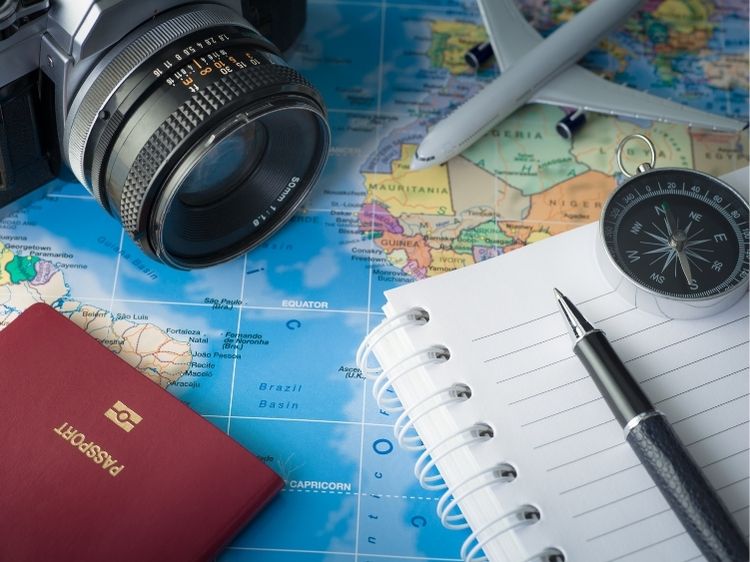What is a Travel Advisory?
A travel advisory is like a friendly nudge from your government, saying, “Hey, be cautious if you’re heading to this destination.” It’s a formal warning issued to inform travelers about potential risks in a country or region. These advisories often address health concerns, political instability, natural disasters, or safety threats.
From understanding travel bans to avoiding scams abroad, being informed about travel advisories can save you from unexpected surprises.
Why Should You Care About Travel Advisories?
Let’s be honest—traveling isn’t all beach sunsets and local cuisines. Sometimes, things can get dicey. Whether it’s a hurricane brewing in the Caribbean or political unrest in South America, travel advisories help you stay ahead of the curve. Here’s why they matter:
- Safety First: Knowing the risks ensures you can prepare and stay safe.
- Health Precautions: Advisories often highlight vaccination requirements or disease outbreaks.
- Legal Awareness: Some countries have strict laws that might catch you off guard.
- Financial Impact: Avoid canceled flights or wasted bookings by being informed.
Types of Travel Advisories
Governments categorize travel advisories based on risk levels. Let’s break it down:
- Exercise Normal Precautions
The green light! These destinations are generally safe, but basic safety practices still apply. - Exercise Increased Caution
Some risks exist, such as minor political unrest or petty crimes. Think of this as the yellow light. - Reconsider Travel
This is the orange alert. Conditions are risky, and it’s better to postpone unless absolutely necessary. - Do Not Travel
The ultimate red flag. This advisory is reserved for war zones, severe natural disasters, or extreme health crises.
Where to Find Travel Advisories?
If you’re wondering, “Where can I find reliable travel advisories?” you’re not alone. Here are a few trusted sources:
- U.S. Department of State (travel.state.gov)
- Government of Canada (travel.gc.ca)
- UK Foreign Travel Advice (gov.uk/foreign-travel-advice)
- World Health Organization (WHO) (who.int)
Preparing for Travel with an Advisory in Place
Got your eyes on a destination with a mild advisory? Don’t cancel your plans just yet! Here’s how to prepare:
1. Research the Risks
- Check for recent news updates.
- Understand the specific threats mentioned in the advisory.
2. Get Travel Insurance
- Opt for comprehensive coverage that includes medical evacuation and trip cancellations.
3. Pack Smart
- Carry a basic first-aid kit and necessary medications.
- Include copies of important documents like your passport and visa.
4. Stay Connected
- Share your itinerary with family or friends.
- Download safety apps like bSafe or TripWhistle.
5. Register with Your Embassy
- This ensures you receive updates and can access help if needed.
Real-Life Examples of Travel Advisories in Action
COVID-19 Pandemic
Remember when international borders closed overnight? Travel advisories played a crucial role in guiding travelers on restrictions and health precautions.
Hurricane Season in the Caribbean
Every year, warnings are issued about tropical storms and hurricanes. Travelers are advised to avoid certain regions or postpone trips.
Unrest in Myanmar
Political unrest in Myanmar led to a “Do Not Travel” advisory for most international tourists.
FAQs About Travel Advisories
1. What should I do if a travel advisory is issued while I’m abroad?
Stay calm and contact your nearest embassy or consulate. They can guide you on evacuation plans or safety measures.
2. Are travel advisories legally binding?
Nope! They’re just recommendations. However, ignoring them could void your travel insurance.
3. Can travel advisories affect my flights?
Yes, airlines might cancel routes to high-risk destinations. Always check with your airline.
4. Do travel advisories apply to specific groups?
Sometimes. For example, high-risk groups like pregnant travelers or individuals with medical conditions may have tailored warnings.
5. How often are travel advisories updated?
Updates depend on evolving conditions. Check official government websites for the latest information.
Summary: Why Staying Informed Matters
Travel advisories aren’t meant to ruin your vacation—they’re here to help you make informed decisions. Whether it’s about health precautions, legal requirements, or political risks, these warnings give you the tools to navigate challenges and stay safe. After all, a smart traveler is a happy traveler!
Authoritative Sources for More Information
- U.S. Department of State: travel.state.gov
- Centers for Disease Control and Prevention: cdc.gov
- World Health Organization: who.int
- UK Foreign Travel Advice: gov.uk/foreign-travel-advice
- Smart Traveler Enrollment Program (STEP): step.state.gov

